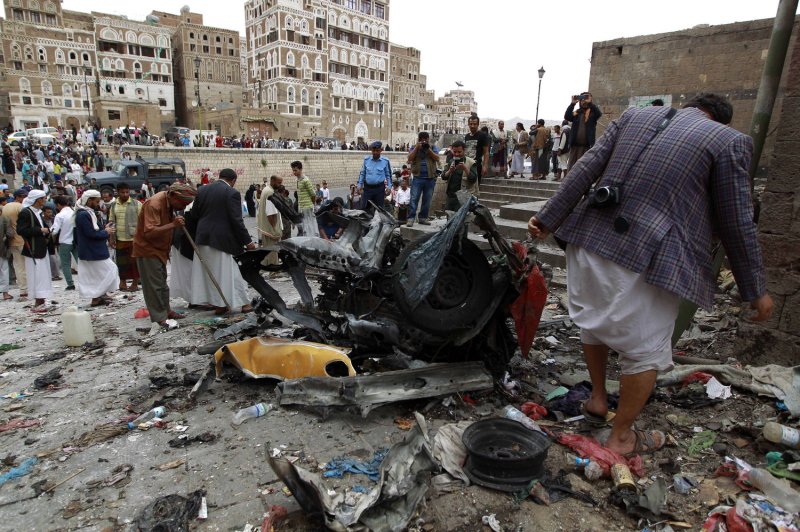War has been waged between Houthi rebels and the Saudi Arabia-led coalition since March, affecting millions. Pictured: Houthi fighters inspect the wreckage of a car at the site of an attack near of Qubbat al-Mahdi Mosque in Sanaa, Yemen on June 20, 2015. At least three people were killed and seven others were injured when a car bomb hit a mosque used by the Houthi fighters in the Yemeni capital. File Photo by Mohammad Abdullah/UPI |
License Photo
ADEN, Yemen, July 6 (UPI) -- Between eight to 30 civilians were killed in airstrikes conducted by the coalition led by Saudi Arabia in Aden, Yemen, as the United Nations hopes to broker a cease-fire.
The battle between the Saudi-led coalition and the Houthi rebels began in March. About 21.1 million people, more than 80 percent of the Yemen's population, needs humanitarian assistance.
More than 160 health care centers have been forced to close, affecting thousands, 13 million people are struck with a food security crisis and 9.4 million have no access to water, according to the United Nations.
The U.N. is hoping to implement a potential cease-fire between the warring factions until the end of the Muslim holy month of Ramadan, July 17, which will allow for humanitarian aid to be delivered. War has continued even as international actors are hoping for a truce in the conflict.
"We are intensifying our efforts to reach a peaceful resolution to this crisis that, in truth, as you know, has resulted in a humanitarian catastrophe for the Yemeni people," U.N. envoy Ismail Ould Cheikh Ahmed said Sunday after arriving in Sana'a, Yemen's capital.
"We were optimistic, but the central issue that we are focusing on is a long-term peaceful resolution and to bring back the issues to the negotiating table so the Yemeni people can return to a peaceful political process," he added.















